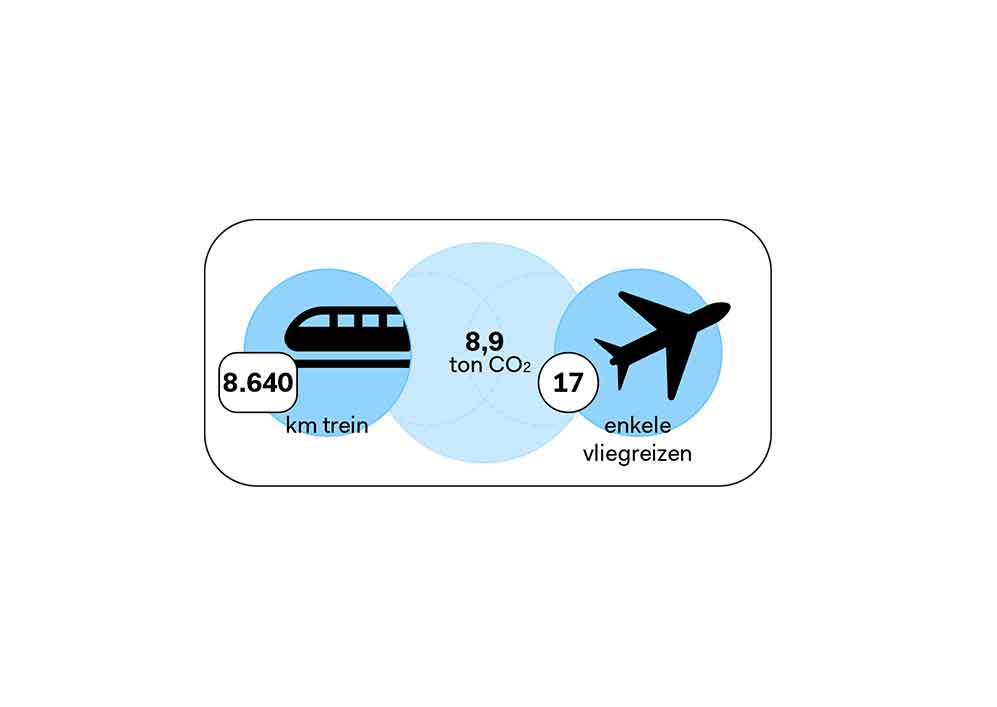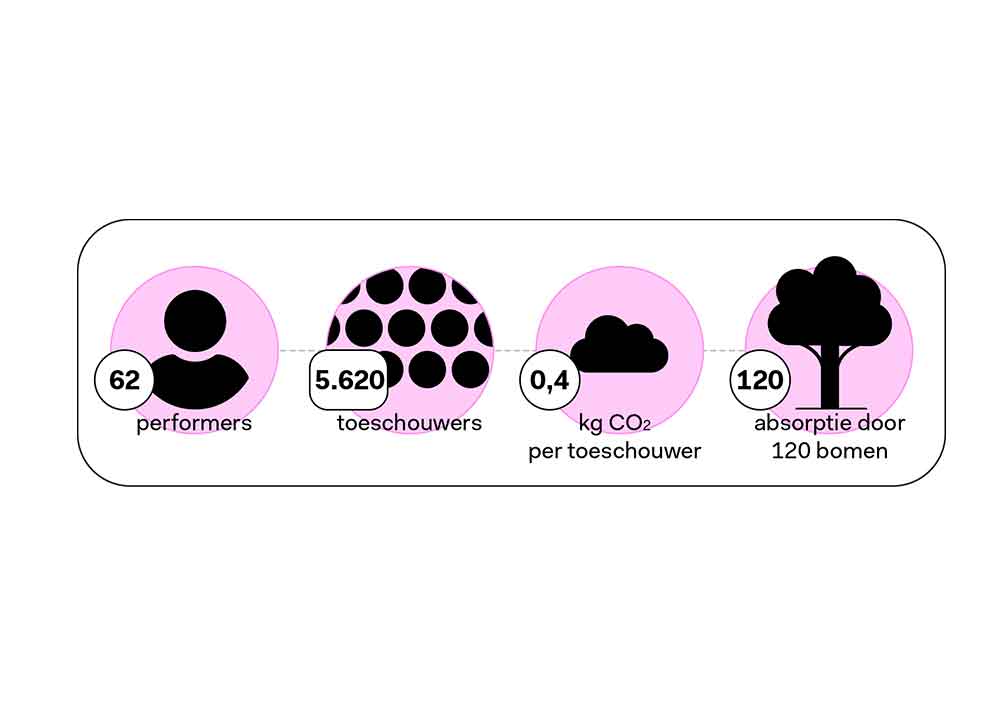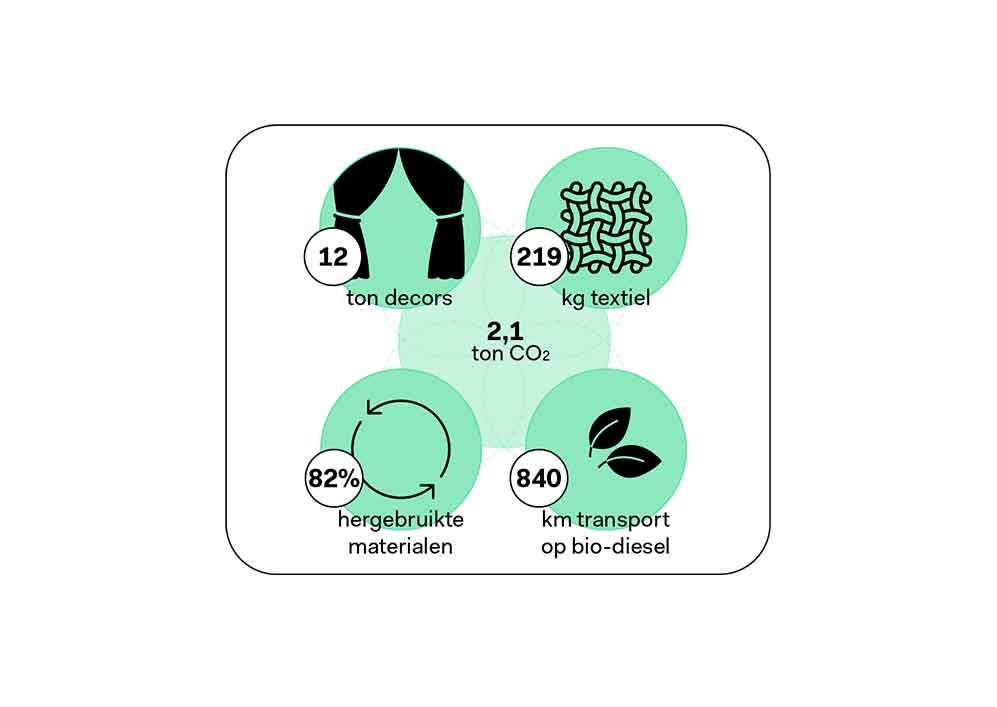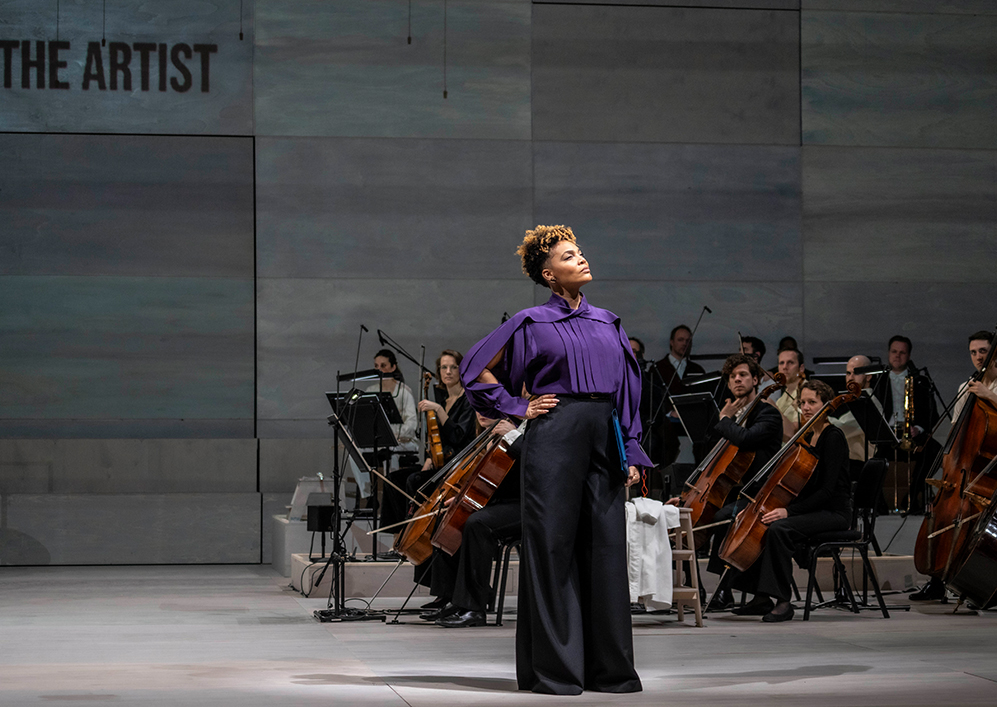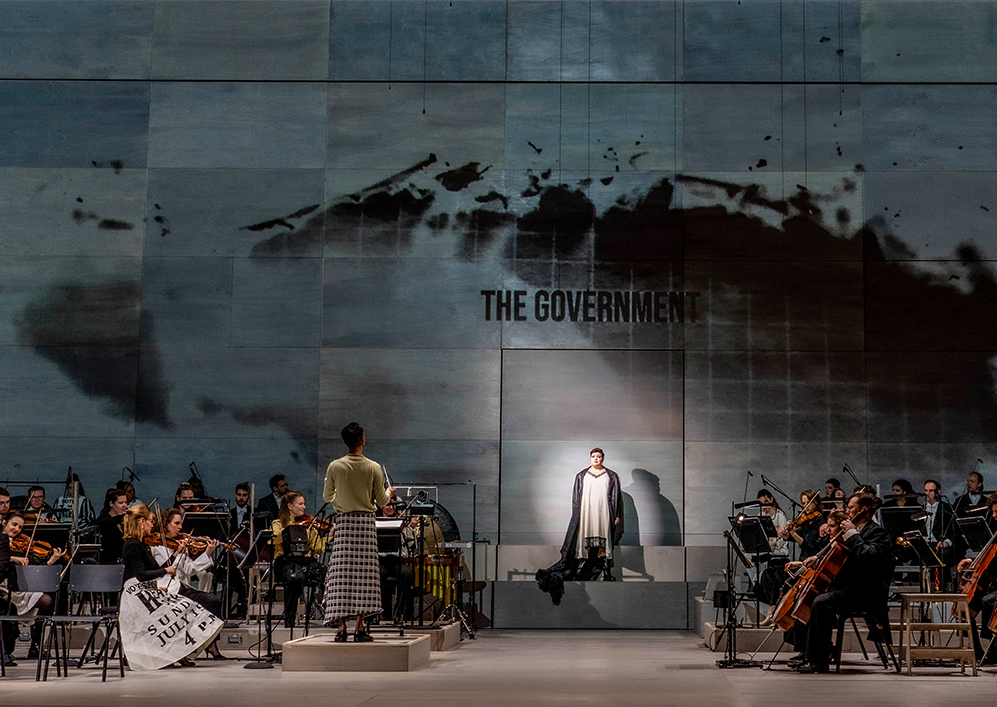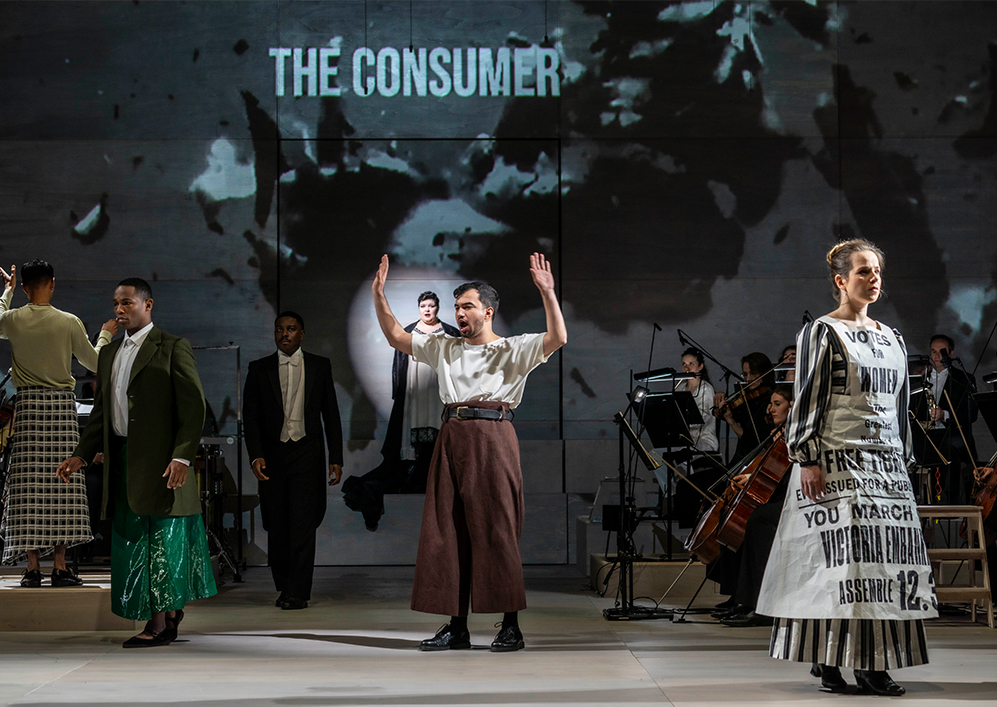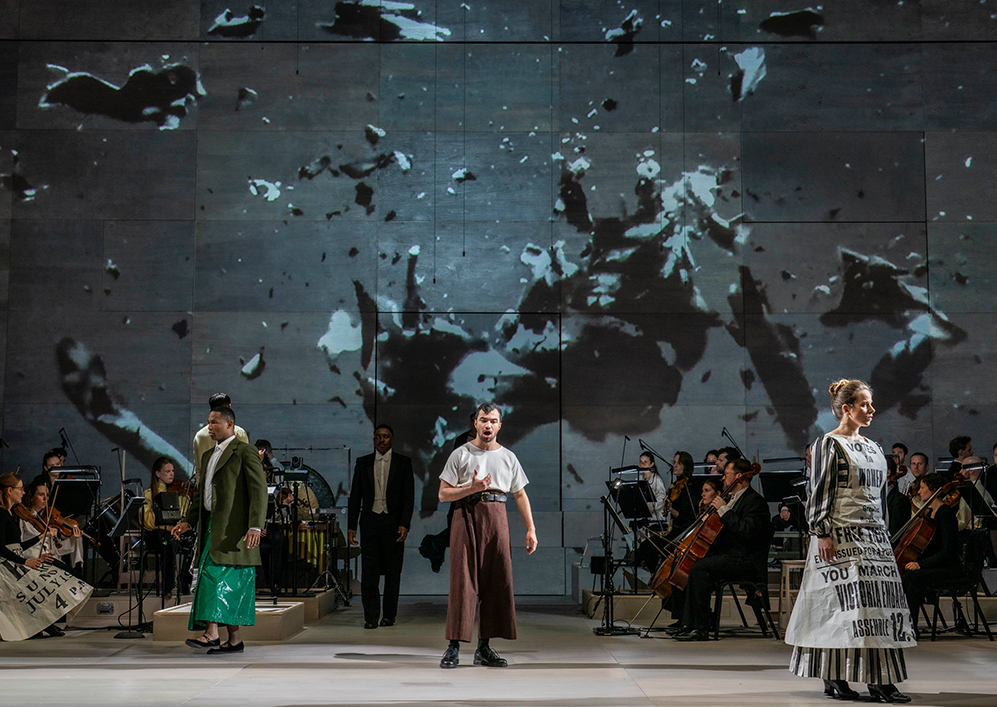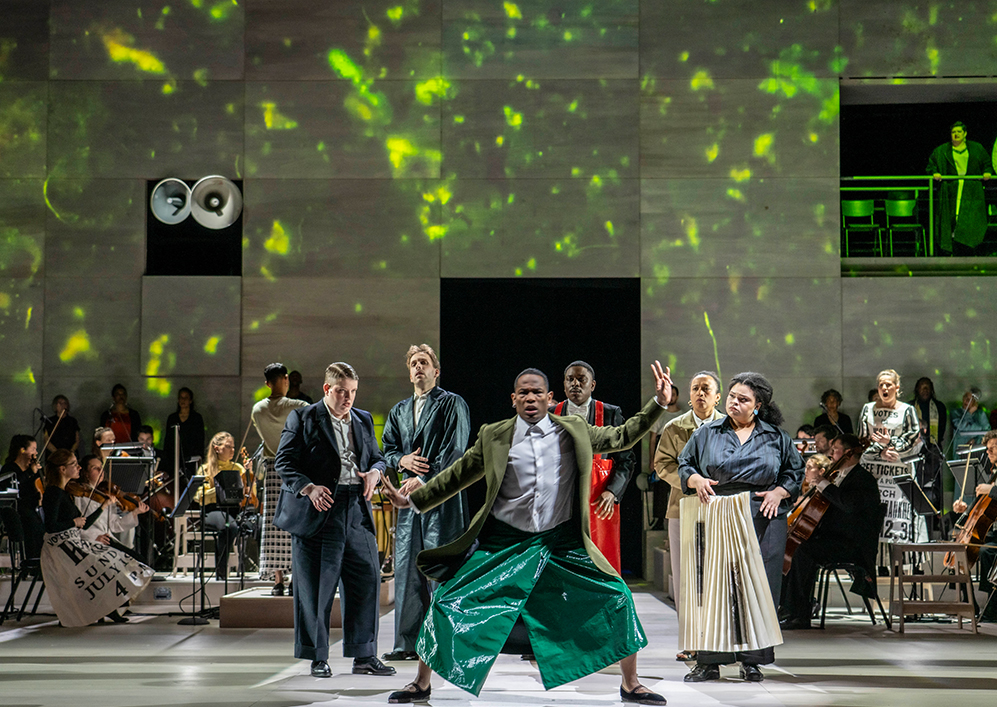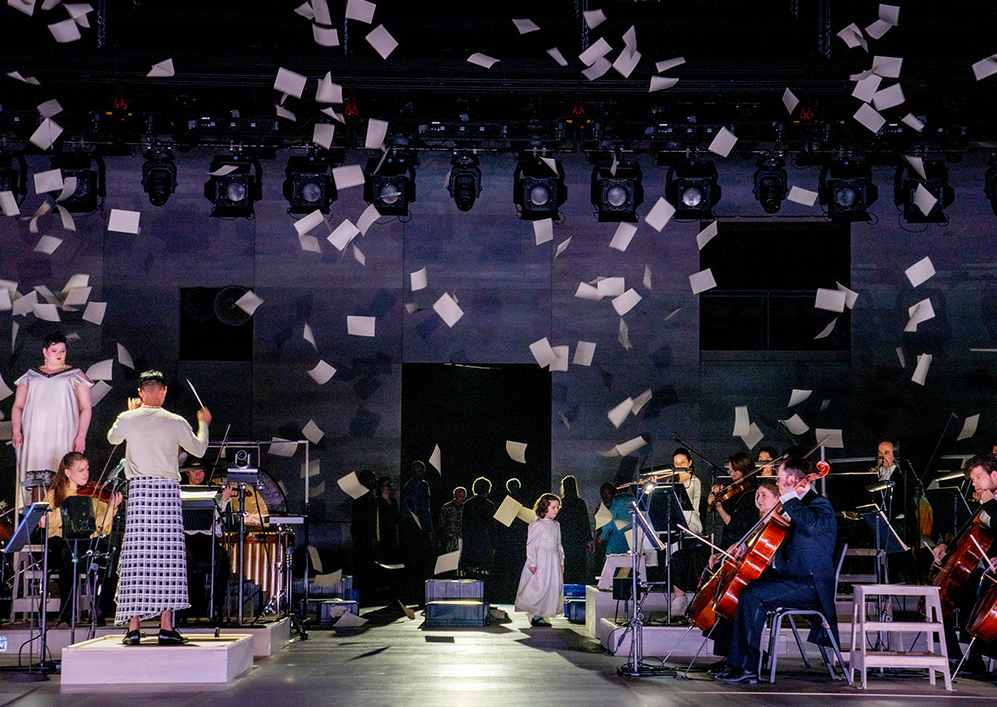
How to make an opera as sustainable as possible?
A brand-new opera with 82 costumes, unique props, and dazzling special effects – but produced as sustainably as possible. How do you achieve that?
At Dutch National Opera & Ballet, we've researched how to create our productions as sustainably as possible. To reduce the environmental impact of our productions, we've developed the Green Deal guideline. The new opera The Shell Trial, which premiered on March 16, 2024, was one of the first productions produced according to the Green Deal. We've looked into aspects such as costume production, travel, and the use of special effects to make them more sustainable. And with success!
Key results
The total environmental impact of The Shell Trial was three times lower than that of previously measured productions. By reusing materials as much as possible, the total circularity score (percentage of reused materials) of the production reached an impressive 82%. This was achieved partly by using most costumes from our own costume storage and purchasing half of the props second-hand. Additionally, the entire production is 100% reusable. All elements were produced with the ability to be reused. The unavoidable CO2 emissions generated by the creation of The Shell Trial were absorbed through a partnership with Trees for All.
Green Deal as standard production method
The results show that this initial pilot was successful, and producing according to the Green Deal will now become our standard practice. Some findings even led to an extra sustainable boost in our theatre, such as producing our facade curtains from 100% recycled PET material. We will share our acquired knowledge with other cultural institutions to inspire everyone on how to make production processes more sustainable.
Want to know more? Below you find more detailed results on the different production elements
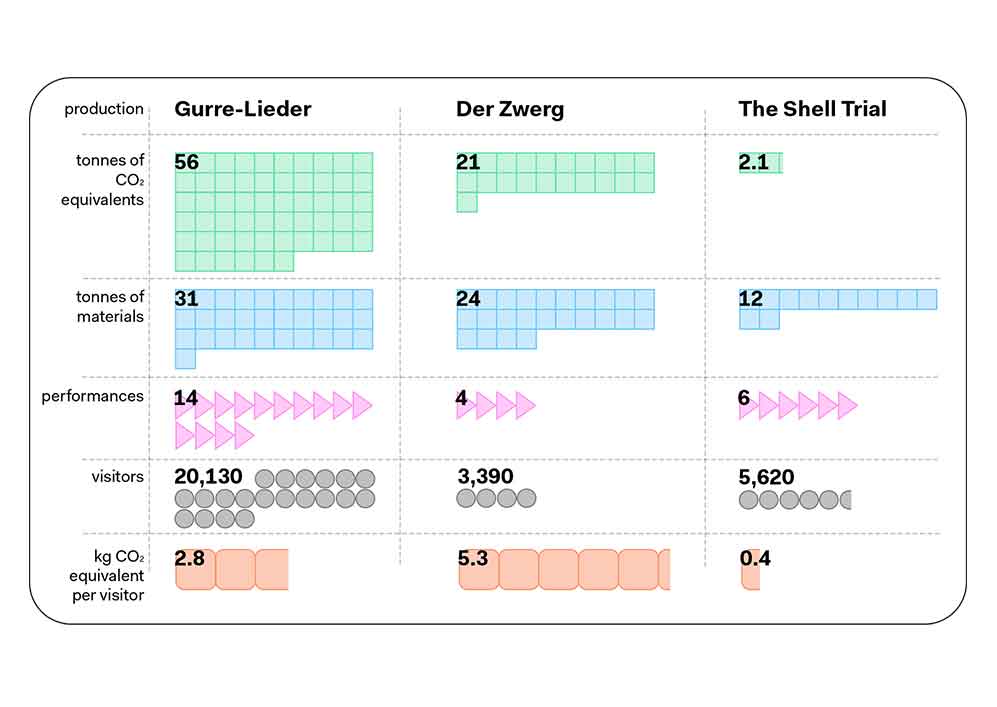

Costumes
For the 82 costumes, 221 kilograms of materials were needed. We were able to use 146 kilograms from our own storage, purchased 95 kilograms of fabrics and garments second-hand, and only bought 8 kilograms of new materials such as hemp and wool.

Sets
A total of 11,220 kilograms of materials were required for the sets. 82% of this was reused from previous productions in our storage, and 2000 kilograms were purchased with low environmental impact materials.
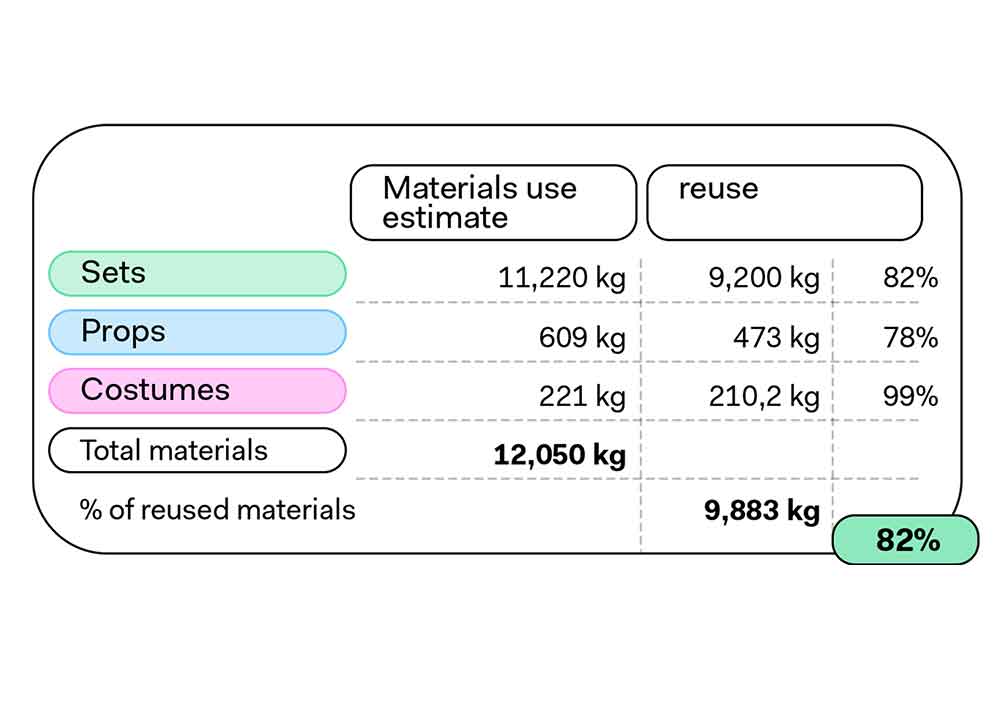

Props
In addition to costumes and sets, props also play an important role in this production. For The Shell Trial, 29% of props came directly from our storage, and 49% were purchased second-hand (and transported by cargo bikes). Most of the CO2 emissions were caused by the purchase of 124 kilograms of steel for the creation of a steel house.

Special effects
The initial concept included creating a rain curtain with fresh drinking water. However, this was not sustainable. This concept was replaced with a 'rain' of shredded (old) paper collected within the theater. There was also a desire for a two-minute-long burning fire on stage. However, the environmental impact of this was comparable to producing 400 eggs, 650 tulips, or flying 260 kilometres. The team chose to shorten the flame duration, reducing the environmental impact by 60%.
Travel and transportation
Not only do materials need to be transported, but our audience and artists also need to reach the theatre. We limited travel and transportation to what was absolutely necessary, opting for more sustainable options such as trains or electric vehicles. In total, business travel accounted for 78% of all emissions for this production. To offer our audience a more sustainable travel option than individually driving to the theatre, we activated the carpool widget Slinger on our website, offering easy carpooling opportunities. Finally, after the series of performances in Amsterdam, The Shell Trial will embark on a tour, including the Bregenz Festival (Austria). All sets, costumes, and props will be transported there in the most sustainable way possible using trucks running on biodiesel.
CO2 compensation
All parties involved in producing The Shell Trial have chosen projects to offset the CO2 emissions. Dutch National Opera & Ballet has partnered with Trees for All, a CBF recognized charity. Trees for All plants trees in the Netherlands and abroad for a better climate, more biodiversity, and healthier living conditions. All visitors to The Shell Trial were asked to contribute to two sustainable forest projects when purchasing a ticket: creating a new clay forest in the Brabant Green Forest and restoring a tropical forest, also the habitat of orangutans, in Borneo. Visitors contributed a total of €484, equivalent to 96 trees. 120 trees were needed to absorb the total emissions of The Shell Trial.
